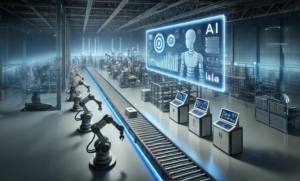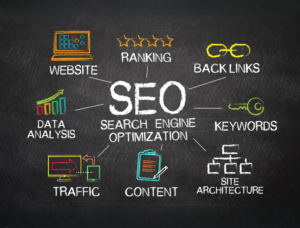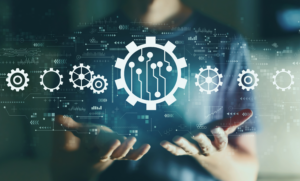Artificial intelligence (AI) has revolutionized the way we work. From automating repetitive tasks to streamlining complex processes, it’s hard to ignore how AI is reshaping the job market. But what does this mean for workers, especially those in roles most vulnerable to automation? Let’s break it down.
What Jobs Is AI Replacing?
AI is particularly effective at automating tasks that are repetitive or require minimal human creativity and emotional intelligence. Here are some jobs being impacted the most:
1. Customer Service Representatives
Many businesses now use chatbots to handle common queries. AI-powered systems can answer questions, troubleshoot issues, and even assist in sales, reducing the need for large customer service teams.
2. Receptionists
Companies are deploying robots and automated systems to manage front desks, schedule appointments, and handle phone calls, making traditional receptionist roles less common.
3. Accountants and Bookkeepers
Automation has transformed accounting. AI software can now manage bookkeeping, generate reports, and analyze financial data, reducing the need for human oversight.
4. Retail Workers
Self-checkout kiosks and online retail automation are replacing cashiers and floor staff, particularly in grocery and retail stores.
5. Warehouse Staff
Automated warehouse systems use AI to sort, retrieve, and load products. Companies like Amazon are already deploying robots to improve efficiency.
Will AI Only Take Jobs, or Will It Create New Ones?
Contrary to popular belief, AI isn’t just about job reduction—it’s also creating opportunities. By 2030, while up to 300 million full-time jobs may be automated, new roles will emerge in areas like AI development, machine learning, and data analysis. Industries such as healthcare, education, and cybersecurity are also seeing growth thanks to AI’s capabilities.
For example:
- AI Specialists: Jobs involving programming and developing AI models are in high demand.
- Healthcare Technicians: AI tools for diagnostics and robotic surgery are increasing the need for skilled operators.
The key to benefiting from these opportunities is upskilling and embracing lifelong learning.
How to Adapt to the AI Revolution
Adapting to AI-driven changes is essential for staying competitive in the job market. Here are some actionable steps:
1. Embrace Lifelong Learning
Take courses on AI and related technologies to stay updated. Online platforms like LinkedIn Learning and Coursera are excellent for acquiring new skills.
2. Develop Soft Skills
AI excels at repetitive tasks but lacks emotional intelligence and creativity. Strengthen skills like communication, problem-solving, and teamwork to remain relevant.
3. Specialize
Focusing on niche areas of expertise can set you apart. For instance, if you’re in IT, mastering AI programming languages like Python can give you an edge.
4. Be Agile
The ability to pivot quickly into new roles or industries is invaluable. Stay open to change and ready to acquire new skills.
FAQs About AI and the Impact on Our Jobs
How does AI affect unemployment?
AI contributes to job displacement, particularly in roles with repetitive tasks. However, it also creates new jobs in advanced tech fields, meaning the net impact depends on how well workers adapt through retraining and upskilling.
Do automation and AI impact job reduction?
Yes, automation and AI can lead to job reductions in industries like retail, customer service, and manufacturing. Still, they drive efficiency and create opportunities in new tech-focused careers.
FAQs About Top Gear Bylaws as a Business
What is Top Gear Bylaws?
Top Gear Bylaws is a company specializing in marketing and AI automation services for businesses. It helps companies optimize processes, increase efficiency, and enhance marketing strategies through innovative technologies.
What Services Does Top Gear Bylaws Offer?
The company provides a wide range of services, including:
- Marketing Automation: Assisting in the implementation of AI-powered tools to optimize marketing campaigns.
- Strategic Marketing: Developing personalized strategies to effectively target audiences.
- AI Integration: Automating business processes, including data analysis and workflow optimization.
How Does Top Gear Bylaws Use AI in Its Services?
Top Gear Bylaws leverages AI technologies to:
- Analyze data and make informed marketing decisions.
- Automate workflows and boost productivity.
- Create and optimize personalized marketing campaigns for businesses.
What Type of Businesses Can Benefit from Top Gear Bylaws?
Top Gear Bylaws works with small, medium, and large businesses aiming to modernize and automate their marketing and operational processes. Their services are flexible and can be tailored to various industries and business needs.
Why Should My Business Partner with Top Gear Bylaws?
Top Gear Bylaws offers:
- Expert knowledge in marketing and AI automation.
- Access to cutting-edge tools and technologies.
- Customized solutions specifically aligned with your business goals.
- Support to scale your business through more efficient processes.
Can Top Gear Bylaws Help Small Businesses Utilize AI?
Yes! Top Gear Bylaws provides specially designed packages for small businesses, helping them implement AI solutions without requiring significant investments.
Conclusion
AI is undoubtedly transforming the job market, automating repetitive tasks, and creating new roles. While certain jobs are at risk, there’s also immense potential for growth and innovation. By staying adaptable, embracing continuous learning, and focusing on roles AI cannot replicate, workers can thrive in this new era.
If you’re looking to stay ahead in your career, start learning about AI today. The future of work awaits!



